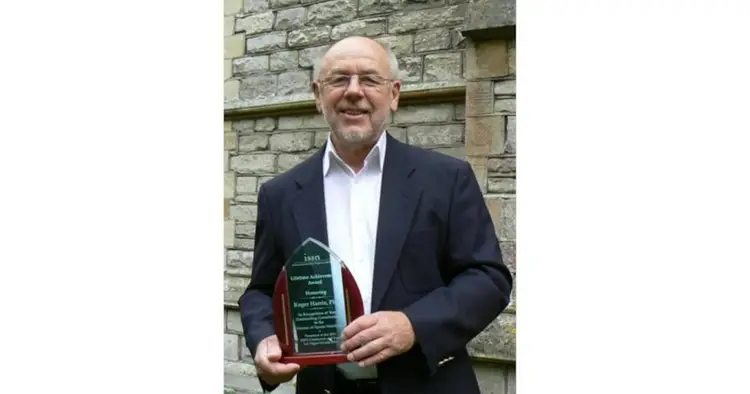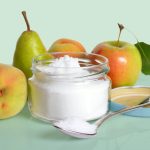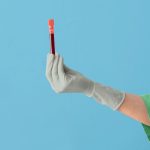Professor Harris, who spent shut to 5 a long time as a number one contributor to the sector of train biochemistry, handed away on Dec. 1 on the age of 80.
He started his profession in 1968, transferring to Sweden to review carbohydrate loading with Dr. Eric Hultman and Dr. Jonas Bergstrom at St. Eriks Hospital in Stockholm after incomes his BSc and PhD in biochemistry from the College of Wales, Aberystwyth.
Jeff Stout, PhD, Pegasus Professor and director on the College of Kinesiology and Rehabilitation Sciences on the College of Central Florida, famous that it was right here that his work “helped remodel sports activities diet right into a laboratory-based science.”
It was additionally throughout his time in Sweden that he developed an curiosity in creatine and creatine-phosphoryltransferase in adenine nucleotide metabolism in contracting muscle, which planted the seeds for research within the Nineteen Nineties that led to the publication of a landmark paper in 1992 in Medical Science that described creatine loading in muscle.
Steve Jennings, co-founder and CEO at Yeu, labored with Professor Harris within the early Nineteen Nineties on creatine. He referred to as him “a visionary and inventive thinker whose groundbreaking contributions without end modified the sector of sports activities diet.”
“His legacy was cemented in 1992 with the publication of a defining analysis paper on creatine, which revolutionized our understanding of human efficiency,” Jennings mentioned. “This landmark examine demonstrated, unequivocally, that creatine supplementation might improve efficiency in explosive, dash and power-related sports activities by 1% to three%, which is a game-changing edge in aggressive athletics. This was confirmed on the 1992 Barcelona Olympics when a number of British athletes utilizing creatine in competitors for the primary time gained gold medals.
“This breakthrough not solely reworked the way in which athletes method efficiency enhancement but additionally laid the muse for creatine to change into a cornerstone of the sports activities diet complement class. Roger’s influence on the sector is immeasurable, and his work continues to encourage and information researchers and scientists worldwide,” added Jennings.
Dr. Ralf Jäger, managing member of Increnovo, first met Professor Harris in 1999 and thought of him a mentor.
“Professor Roger Harris was a real pioneer within the discipline of sports activities diet analysis,” he mentioned. “His groundbreaking work on the useful results of creatine and beta-alanine on athletic efficiency reworked the way in which athletes method their coaching and restoration.
“I had the privilege of assembly him 25 years in the past, and from that second, he grew to become a mentor whose knowledge, steerage and fervour profoundly impacted me. His dedication to advancing sports activities science and his capability to encourage others had been unmatched, leaving a permanent legacy in each the scientific neighborhood and the lives of those that had the pleasure of assembly him.”
“Professor Harris’ affect will proceed to form the way forward for sports activities diet for generations to come back,” Dr. Jäger added.
“He at all times taught three important guidelines when growing new components: #1 does it get into the blood?, #2 does it attain the goal tissue—usually the muscle?, and #3 can supplementation enhance muscular shops of that ingredient, subsequently leading to significant physiological enhancements? These rules guided his analysis and helped form the understanding of how particular vitamins can optimize athletic efficiency.”
Professor Harris was additionally concerned within the early science round beta-alanine, together with a 2006 paper in Amino Acids, which confirmed for the primary time that beta-alanine supplementation might elevate carnosine ranges.
The second creator on this paper is Mark J. Tallon, PhD, managing accomplice and founding father of the UK-based Authorized Merchandise Group. Professor Harris was Dr. Tallon’s PhD supervisor, and the pair continued to collaborate after Dr. Tallon obtained his doctorate.
“I searched out Roger (in 1999 for my doctorate) because of my curiosity in creatine and already at the moment he was a seminal identify in comparative physiology, biochemistry and sports activities efficiency,” Dr. Tallon mentioned. “Over my 4 years of finding out below Roger, we constructed a lab, revealed the primary papers on carnosine and beta-alanine and had a couple of laughs electrocuting one another and taking biopsies.
“Over time my interplay with different teachers made me notice he was actually distinctive thinker and one whom linked the dots others couldn’t see. While I can laud his tutorial credentials, I wish to bear in mind him additionally as an individual, somebody prepared to share his information and as somebody with a ardour for educational discovery.
“These classes haven’t been forgotten, and I remained in touch with Roger till this yr with our final assembly in summer time 2023—at which era he was nonetheless as astute, energetic and concerned with new areas of science and dwelling life to the complete.”
Beta-alanine subsequently grew to become a blockbuster ingredient within the sports activities diet house, notably below the model identify CarnoSyn by California-based Pure Options Worldwide (NAI).
Mark LeDoux, NAI’s CEO and chairman, commented: “Seldom in life does one encounter an individual with an inquisitive nature who has ineffable enthusiasm to pursue hunches and convert them into scientifically provable information, permitting lives to be blessed with improvements within the realm of diet. Professor Roger Harris was such a person of indefatigable power and a eager thoughts able to essential pondering.
“Whereas sadly he has handed from day by day life amongst us, his legacy of scientific analysis that gave encouragement to so many world wide together with his groundbreaking work with creatine and beta-alanine endures and continues to broaden.
“Athletes of every kind, notably these requiring nice endurance and muscle power benefited from his major analysis, and folks involved with getting old and gracefully sustaining full capability for enjoyment of life whereas preserving their ambulatory and motor abilities, to not point out a pointy thoughts and wholesome skeletal construction and rigorous cardiac perform, have been blessed with the fruits of Roger’s labors.
“CarnoSyn Beta-Alanine has been ingested by tens of millions of individuals world wide, and athletes have stood on podiums receiving the best accolades of feat who partially owe their excellence to his work whereas aged individuals who had been challenged with mobility had their ambulatory features restored by supplementation. I’ll miss my good friend of over 30 years however will smile each time I consider him and the multitudes of individuals he has helped by his lifelong journey in science.”
What is obvious from all of the tributes is that Professor Harris’ sensible thoughts was matched by the generosity of his coronary heart.
Professor Rick Kreider, PhD, director of the Train & Sport Vitamin Lab at Texas A&M College, described Professor Harris as an exquisite individual, sensible physiologist and biochemist and long-time colleague.
“I used to be honored to work with Professor Harris on many initiatives because the early Nineteen Nineties when he revealed the seminal paper exhibiting that oral creatine monohydrate supplementation might enhance muscle phosphocreatine shops,” he mentioned.
“He then confirmed that oral beta-alanine supplementation might enhance muscle carnosine and function an ergogenic assist for high-intensity train efficiency. Creatine and beta-alanine are actually among the many simplest and in style dietary dietary supplements for athletes and energetic getting old populations.
“Extra importantly, Roger was a valued colleague, mentor, good friend and humble scientist whose work has impacted tens of millions worldwide. Roger shall be missed however his influence will dwell on. Nicely carried out, my good friend!”









